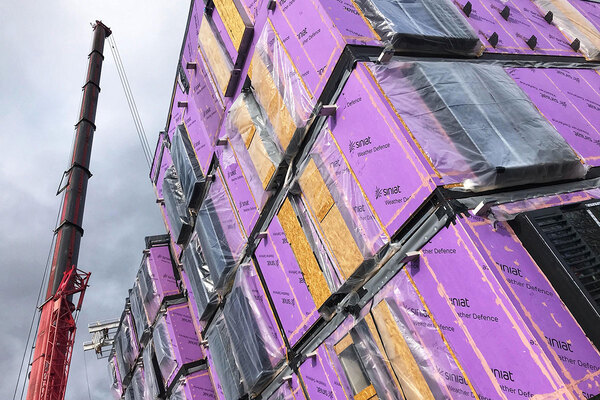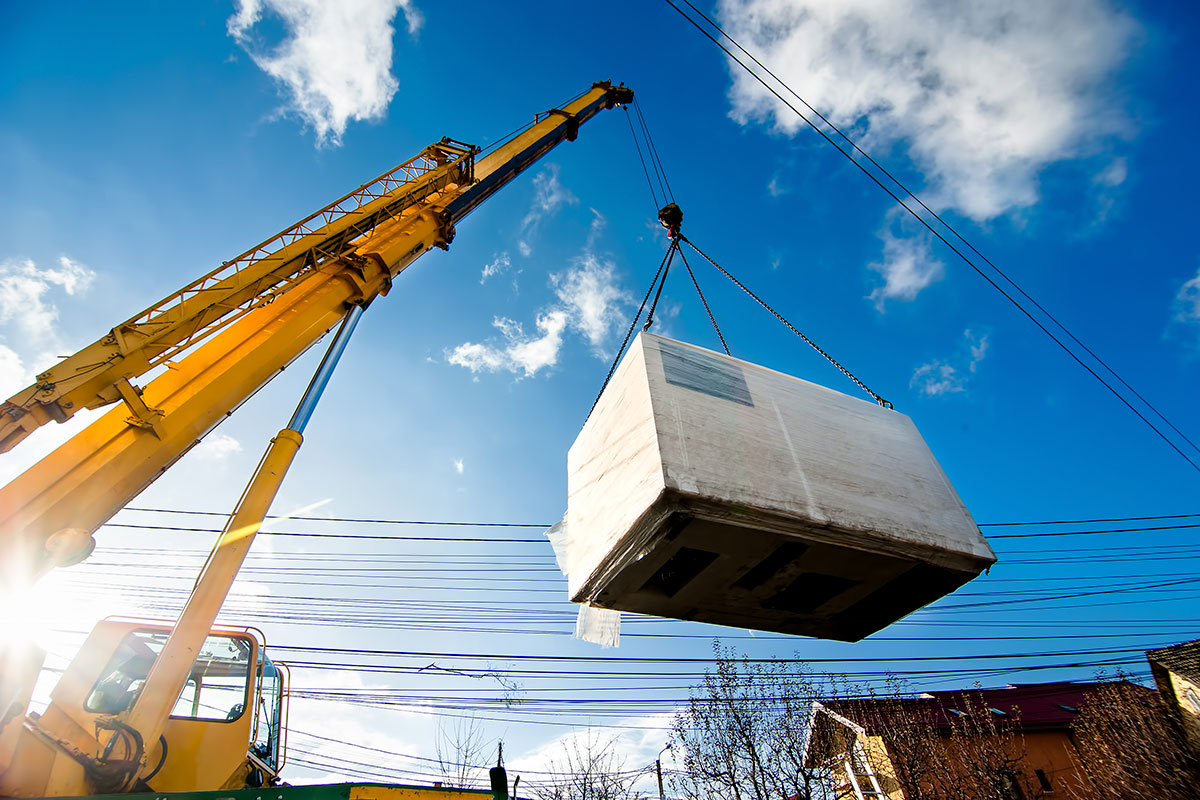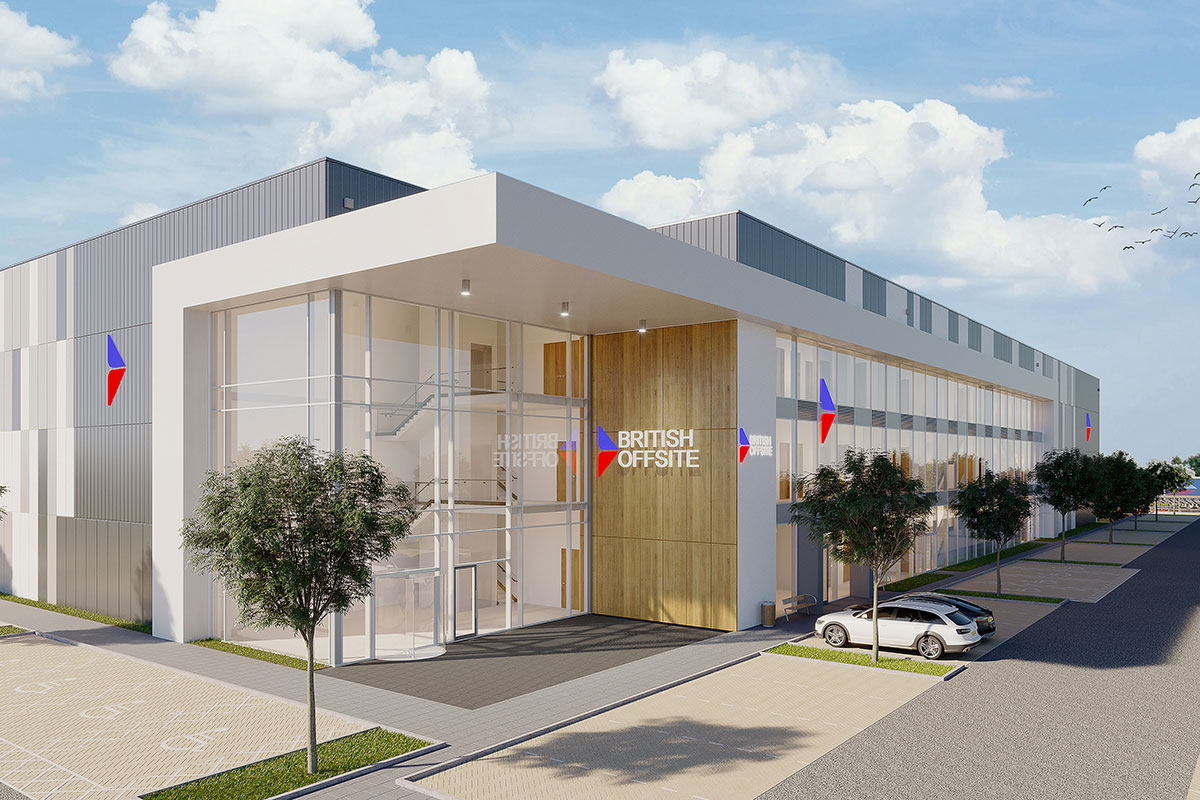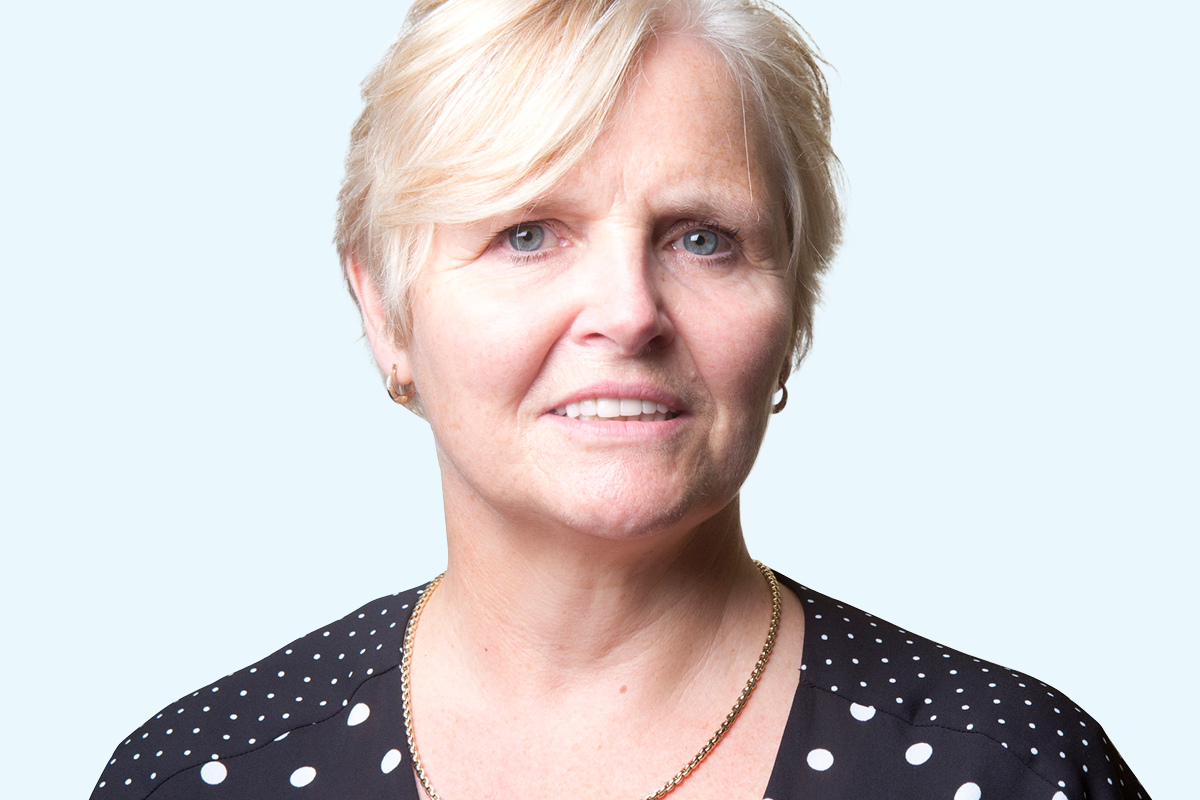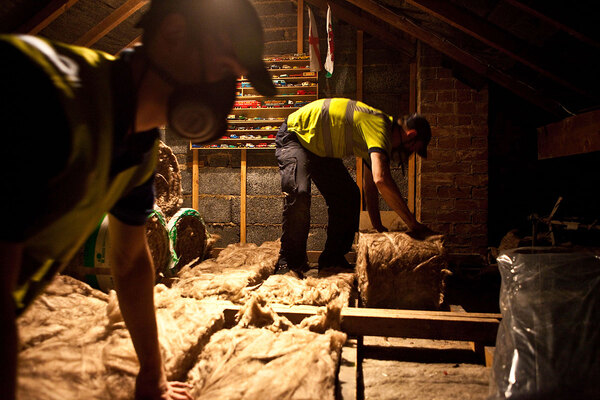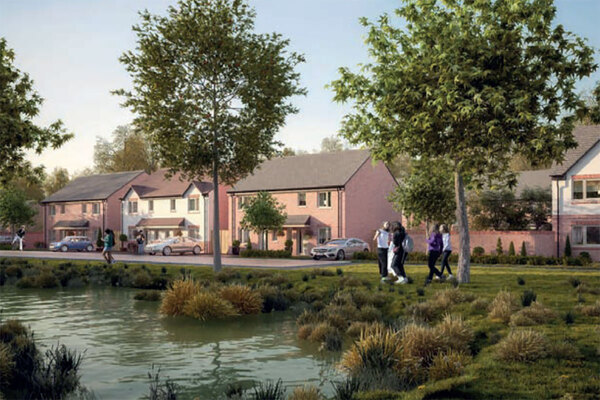Six offsite firms picked for £600m NHF-backed procurement scheme
Six modular construction companies have been picked as the first companies on a new £600m construction framework for the development of new housing association homes.
Future Built, LoCal Homes, Project Etopia, Roe Timberframe, Sigmat, and Starship Homes were named as the first six companies to win places on the Building Better alliance’s dynamic purchasing system (DPS).
The system is backed by the National Housing Federation (NHF) and can be used by an alliance of 29 housing associations from across the country, including Catalyst, LiveWest, Nottingham Community Housing Association and the Royal Borough of Kingston.
The DPS will be worth £600m over four years and will require the selected organisations to provide 2D panelised systems, which will then be assembled onsite.
Building Better took the decision to create a DPS rather than a fixed framework so that panelised manufacturers could join at any point across its duration.
All of those selected on the DPS must be certified by the Buildoffsite Property Assurance Scheme (BOPAS) or assessed by building warranty provider the National House Building Council (NHBC), and their products must aim to meet the Future Homes Standard.
The DPS will run in parallel with Building Better’s first modern methods of construction (MMC) framework, which launched in July 2021 and covers category 1 volumetric 3D systems.
The framework, which was also worth £600m, saw modular giants such as TopHat, Ilke Homes and Impact Modular picked. It is expected to deliver hundreds of homes over the next five years.
Since the launch of its volumetric framework in 2021, alliance members have put nearly 40 schemes through it, getting costs on more than 900 MMC homes. With the launch of its DPS, Building Better will help the social housing sector to produce around 5,000 MMC properties by 2026.
Trina Chakravarti, project director of Building Better, said: “The emerging nature of this part of the MMC marketplace means that social housing organisations have, to date, been wary of category 2. Some told us they were anxious about committing to a panelised manufacturer, not knowing if the company or even this form of MMC would be around in four years.
“Because of this, we knew a different procurement approach was needed – one that would still provide high standards and ease of access like our category 1 framework, but a solution that didn’t ‘clip the wings’ of manufacturers operating in such a fluid environment.”
Sign up for our development and finance newsletter
Already have an account? Click here to manage your newsletters
